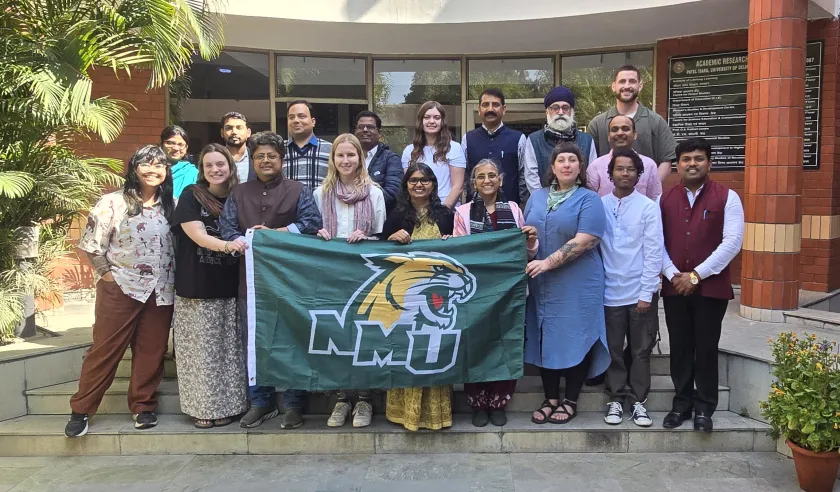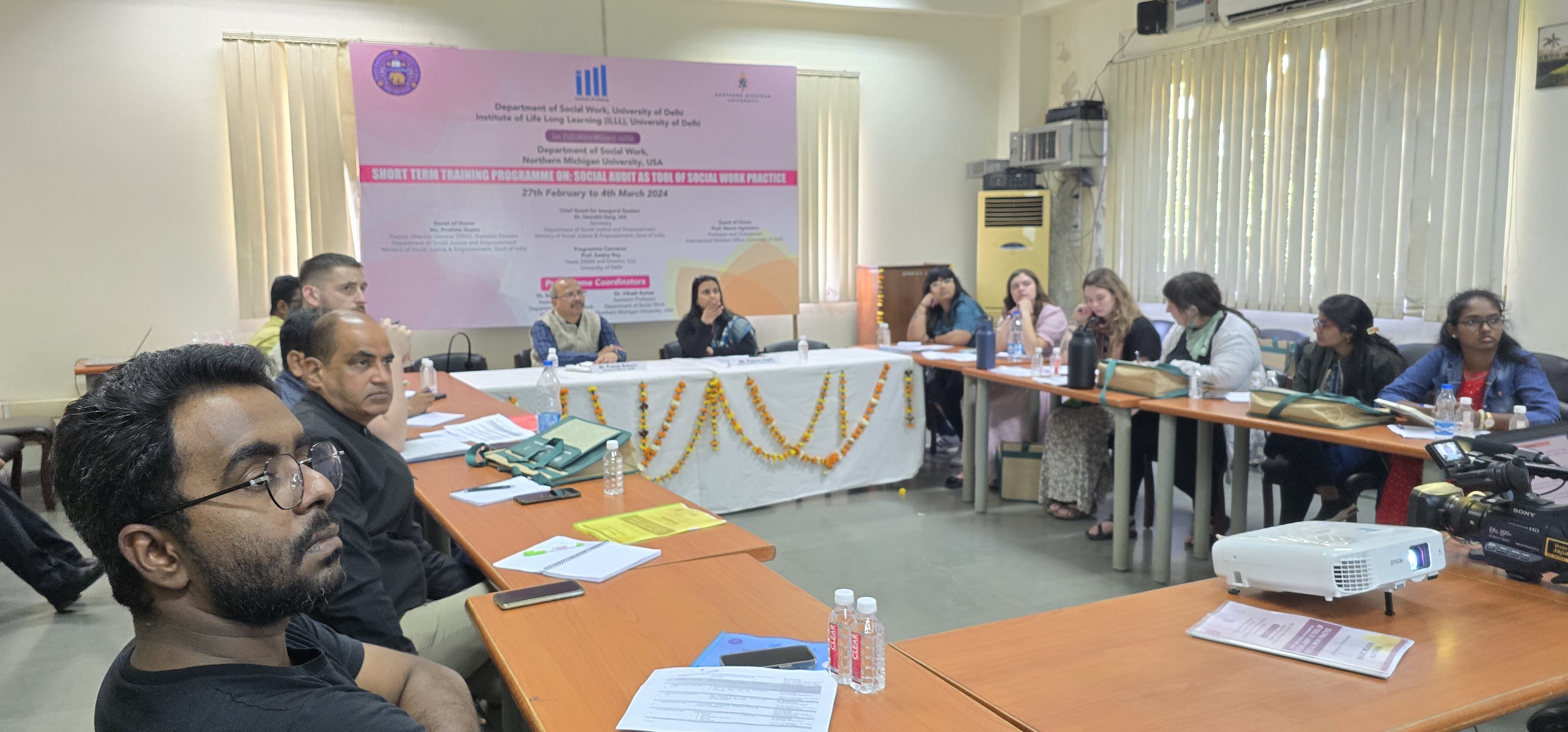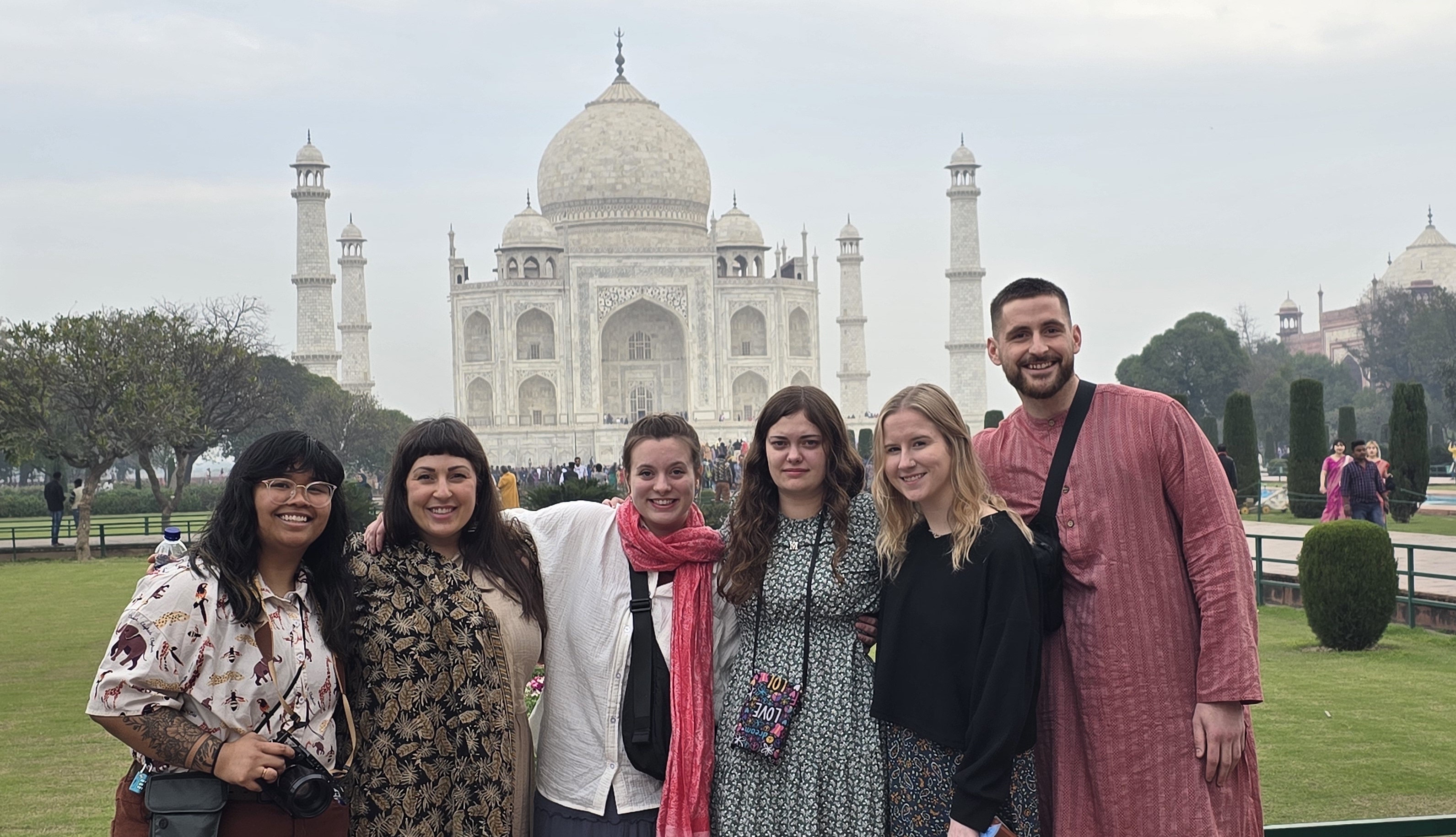Northern Michigan University social work students recently traveled to India through a collaboration with the Delhi School of Social Work at Delhi University. They received real-world training in social audit processes and transparency mechanisms—skills that will prepare them to be better administrators and program managers in their careers after graduation.
“We aimed for students to gain a deep understanding of social audit processes and see the impact of transparency and accountability in governance and social welfare programs,” said NMU professor Vikash Kumar. “We hoped to inspire students with the workings of international organizations, preparing them for potential careers in global social work.”
Kumar said social audits promote a participatory process that can expose the decisions, processes and achievements often hidden by the official secrecy of resource allocation and decision-making, without risking unjust retaliation. More importantly, they provide volunteers and beneficiaries with an up-close and enlightening education about their basic rights and entitlements, and reveal how to rightfully claim community resources and manage community affairs alongside the officially incumbent villagers and officials.
The effective use of social audits has significantly improved service delivery and governance. By allowing everyone to have a say in how services are provided, social audits enable early identification and resolution of problems before they escalate. Feedback from social audits facilitates changes and improvements in operations to achieve better outcomes. This, in turn, helps policymakers and service providers perform their roles more effectively.
The students' training in India consisted of learning principals of social accountability and the history of Indian social audits through field visits in Chandigarh, Punjab. They gained insights on the legal and institutional mechanisms of the audits and witnessed the steps in conducting them. These include planning, data collection, verification, reporting and follow-up actions.
In Punjab, students got to observe social audits under the Mahatma Gandhi National Rural Employment Guarantee Act (MGNREGA) initiative and learned how to engage communities and better understand their issues.
Kumar said this trip was part of the NMU Social Work Department's efforts to broaden the scope of learning opportunities for students.
“Our department's initiative is to prepare students for international social work by helping them understand global human rights issues and practices,” he added.
Kumar holds a bachelor's in social work from Indira Gandhi National Open University, a master's in social work from Tata Institute of Social Sciences in Mumbai, and a doctorate in global health from Queen Margaret University in Edinburgh.



